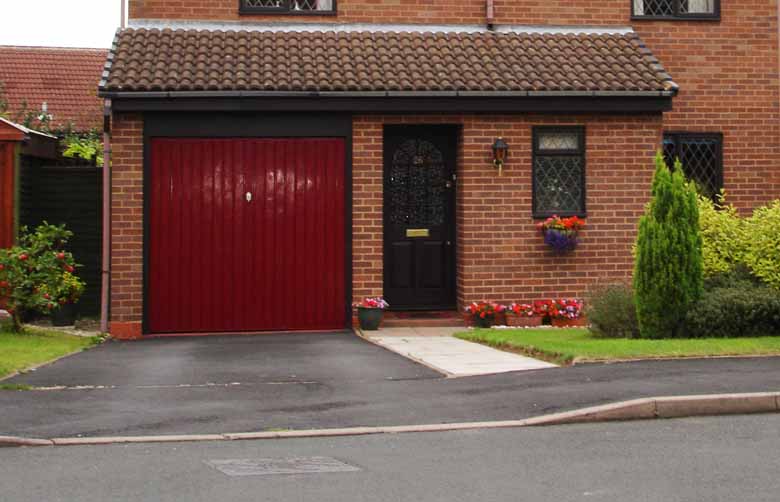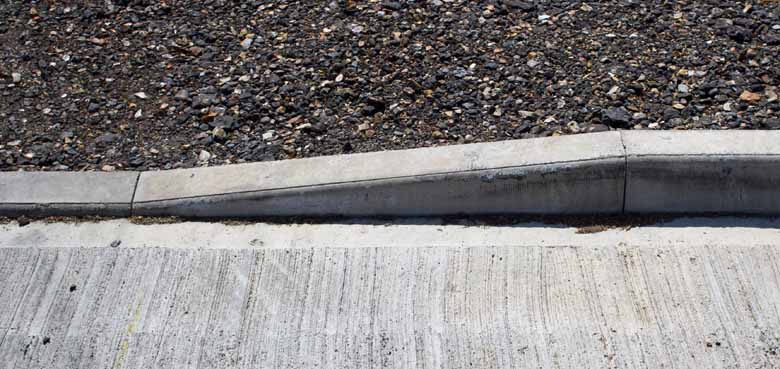Parking has long been a ‘must-have’ for many buyers and homeowners. With an average of 1.2 cars per household in the UK, it’s fair to say space for cars is at a premium. Currently, it’s only illegal to park on the pavement in London, however, a new ban is being considered that could cause havoc to residential streets around the country.
In order to combat this potential ban and serious imposition, now might be a great time to update your driveway and get yourself a dropped kerb.

Are driveways a good investment?
Whilst the cost of installing a driveway can range from a few hundred pounds to a few thousand, they’re definitely a worthy investment. Not only can a driveway increase the value of your home, but it’ll also decrease the amount of time you need to spend maintaining the exterior of your home.
You may even find that parking on your drive could lower your insurance.
Is planning permission needed for a new driveway?
You will only need planning permission for a new driveway if the material you’re using is non-porous and it won’t allow water to run off, or you want to cover an area greater than five square meters.
You may also need permission if your home is a listed building or you live in a conservation area. Before starting any work on your new driveway, you should speak to your local planning office.
If you are looking at installing a dropped kerb from a public highway, you will need to apply for a special dropped kerb or domestic vehicle crossing licence from your local council.
What are dropped kerbs?
Dropped kerbs refer to the edges of the pavement that are lowered to allow easy access across the pavement onto a property from a highway. Dropped kerbs also make it easier for pedestrians with pushchairs or wheelchairs to get to the pavement from the road.

Is a dropped kerb necessary?
If you plan on driving your vehicle over a footpath to access a driveway or private land, then you will need a dropped kerb.
If you drive across a pavement without a dropped kerb, you’re breaking the law and could face legal action. In addition:
- You could be found liable if you have a collision with a pedestrian
- You could be found liable for damage to the footpath
- You could face costs due to any damage under the footway to utility apparatus such as gas, water, and electric mains and cables
How do I apply for a dropped kerb?
To apply for a dropped kerb, you will need to contact your local council. Typically, you will need to submit a request.
Following your request, you will then be instructed to pay a refundable quotation fee. This will be deducted from the installation total if you go ahead with the planned works.
Once paid, an officer will attend to your property to gather further information and ascertain whether a dropped kerb is possible and if so, where the dropped kerb will go.
How much will it cost?
The cost of a dropped kerb will depend on the number of kerbs that need to be adjusted, and how wide the footpath is from the kerb to your boundary line.
Other factors, such as grass verges, utility boxes and lighting columns will also impact the overall cost.
Typically, a dropped kerb is constructed of five kerbstones and can cost anywhere from £1,500 to £3,000.
How long does it take to install a dropped kerb?
Once work has begun, a dropped kerb can take between 5 and 7 days to install.
Can a dropped kerb application be refused?
Yes. Installation of a dropped kerb can be refused if:
- Your property is on a bend or at a road junction
- A tree is in the proposed crossing
- Street furniture or a street lamp may impede access
- Your property is close to traffic signals
- There is a steep slope between your property and the road
- There is insufficient garden area
- There is insufficient visibility
Can I use my own contractor to install a dropped kerb?
It is possible to use your own contractor, however, they must:
- Have full New Roads & Street Works Act (NRSWA) staff accreditation
- Public Liability Insurance, a minimum of £10,000,000
- Planning consent where applicable
- Possession of vehicle crossing installation standard details from the highway authority
- Full service/utility drawings for the location
- Conform to all chapter 8 guidelines for working on the highway
To get quotes for driveways – post a job now.